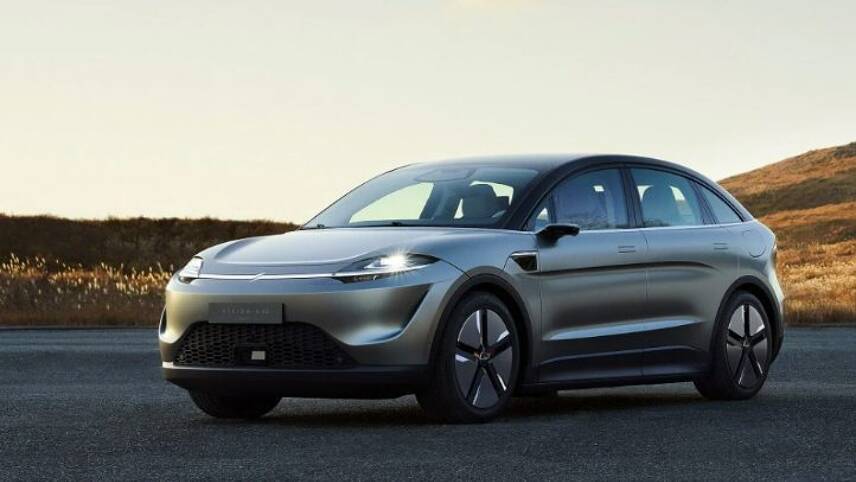Register for free and continue reading
Join our growing army of changemakers and get unlimited access to our premium content

Image: Sony Group Corporation
The company announced the move today (5 January) at the Consumer Technology Association’s CES trade show in Las Vegas, which is widely regarded as one of the biggest annual technology expos in the world. Sony confirmed that the company will be called “Sony Mobility Inc”.
It first exhibited an EV at CES 2020 and has since undertaken public road testing, safety testing and 5G driving tests, but has not taken the model – called the Vision-S 01 to market. Now, a second EV has been unveiled, the Vision-S 02. Two of the cars were on stage at CES.
Innovation of mobility.
Sony’s Vision-S #CES2022 pic.twitter.com/lLykDAUapB
— Sony (@Sony) January 5, 2022
Sony has confirmed that the Vision-S 02 has two 200kW motors and a top speed of 112mph. It has not confirmed battery technology, size or range. However, Sony has published information about the car’s digital technologies.
The seven-seater SUV boasts 5G connectivity, remote operation capabilities and 360-degree sensors including active pixel sensors and light detection and ranging (LiDAR) sensors. There is also digital driver authentication and the car is able to detect gesture and voice commands from the driver.
As you would expect from an EV from Sony, there are also in-seat speakers and PlayStation-enabled remote gaming options.
“With our imaging and sensing, cloud, 5G and entertainment technologies combined with our contents mastery, we believe Sony is well-positioned as a creative entertainment company to redefine mobility,” Sony’s chairman and president Kenichiro Yoshida said.
The prototype vehicles have been built and engineered by Austrian firm Magna Steyr, which builds EV models including the Jaguar I-Pace.
Sony said in a statement that the aim of Sony Mobility Inc, other than commercializing the Vision-S 02, will be the “make the best use of artificial intelligence (AI) and robotics technologies”. As well as road transport, it will be operating in the drone sector.
Tabloids and trend forecasters are speculating that more technology firms will seek to enter the EV space in the coming years due to the success of companies such as Tesla and Arrival, and due to nations strengthening EV-related policies as the net-zero movement continues.
Bloomberg reported in November, for example, that Apple is planning to launch a self-driving EV by 2025.
The news comes shortly after the International Energy Agency (IEA) published a new analysis of global car sales, revealing a 10% year-on-year uptick in SUVs for 2021. SUVs weathered the Covid-19 pandemic better than other types of passenger car, but electrification progress has been slow.
Sarah George


Please login or Register to leave a comment.